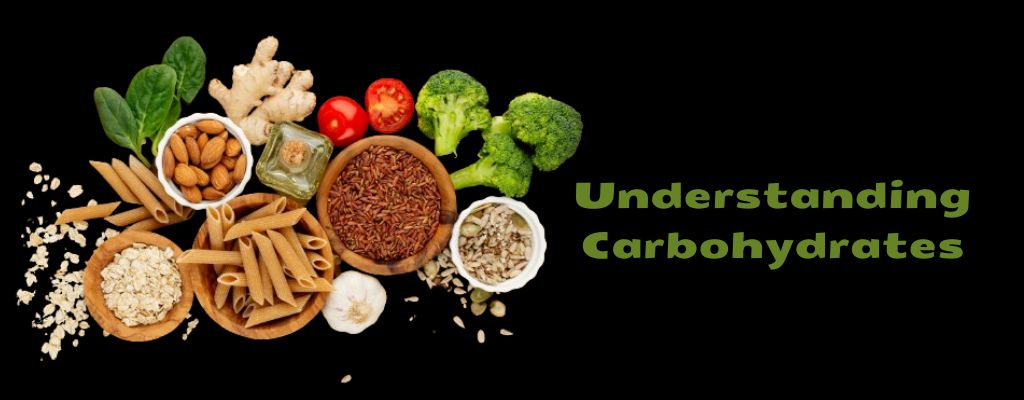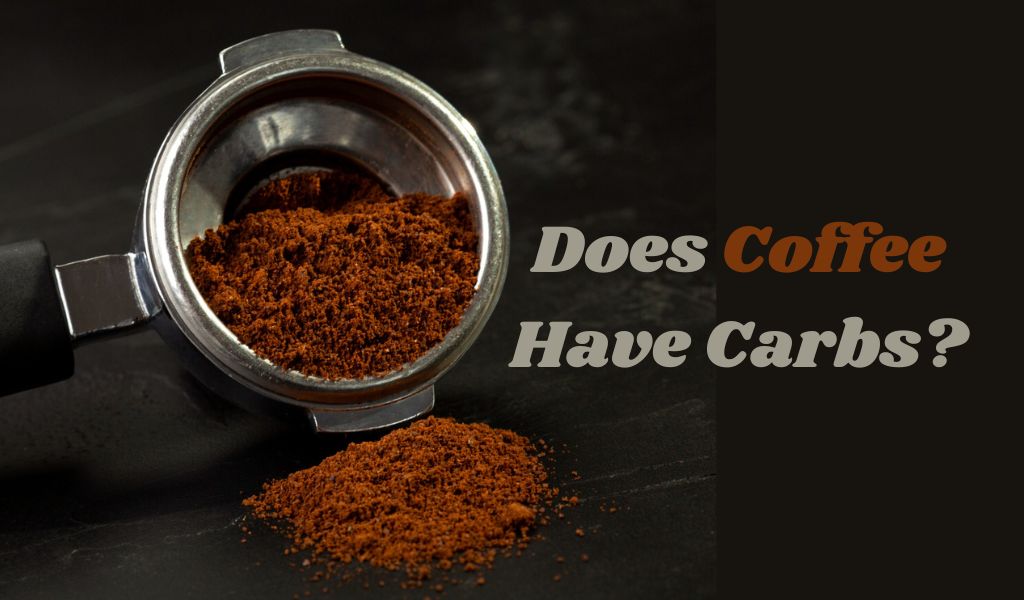Coffee does not contain any carbs. It is a carb-free beverage.
Coffee, a popular dark and slightly acidic drink, is renowned for its stimulating effect due to its caffeine content. With the highest sales in the hot drinks market globally, it is prepared from roasted coffee beans. While people commonly associate coffee with its stimulating properties, there is also confusion regarding its carbohydrate content.
Interestingly, coffee itself is carb-free. However, if milk or flavored syrups are added, the carbohydrate content can increase. This article aims to provide clarity on the carb content of different types of coffee and how it impacts various diets, including the popular keto diet. Let’s explore the nuances of coffee and its carbohydrate levels in detail.
Coffee And Its Composition
Coffee is a popular beverage known for its stimulating effects due to the presence of caffeine. Understanding the composition of coffee can shed light on its potential impact on a person’s dietary intake, particularly in relation to carbohydrates.
The Basics Of Coffee
Coffee is a well-loved beverage prepared from roasted coffee beans, featuring a dark color and slightly bitter taste. It is widely recognized for its stimulating properties, primarily attributed to its caffeine content. This aromatic drink is a global favorite in the realm of hot beverages.
Brief Overview Of Coffee
Darkly colored and slightly acidic, coffee has gained popularity worldwide. It is appreciated for its invigorating effects, chiefly due to the presence of caffeine. With its highest sales in the global market for hot beverages, coffee has transcended cultural boundaries and become an integral part of numerous societies.
The Composition Of Coffee
When exploring the composition of coffee, it is noteworthy that it consists of various components such as caffeine, chlorogenic acid, trigonelline, and diterpenes. These compounds collectively contribute to the captivating aroma and stimulating effects of this beloved drink.
Caffeine And Its Effects
Caffeine, a prominent constituent of coffee, is responsible for its energizing properties. These effects, often sought by consumers, manifest in increased alertness and improved cognitive function upon consumption of caffeinated coffee.
Does Coffee Contain Carbs?
Coffee is a beloved beverage enjoyed by millions around the world. Whether you start your day with a piping hot cup of black coffee or prefer a creamy latte, the thought of coffee containing carbs may have crossed your mind at some point. In this article, we will debunk the myth of carbohydrates in coffee, delve into the understanding of carbohydrates, analyze the carb content in coffee, and explore the impact of different coffee variants on carb intake.
Debunking Carbohydrates In Coffee
Contrary to popular belief, pure black coffee contains negligible amounts of carbohydrates. This means that your usual morning cup of joe isn’t contributing to your daily carb intake, making it a suitable choice for those following low-carb diets.
Understanding Carbohydrates

Carbohydrates are a macronutrient found in various foods and beverages, including sugars, starches, and fibers. They are a primary source of energy for the body and play a crucial role in nutrition.
Analyzing Carb Content In Coffee
When examining the carb content in different types of coffee, it’s essential to consider any additional ingredients or flavorings. For instance, a standard black coffee contains virtually zero carbs, while a milky latte or a sweetened iced coffee may contain a higher carb content due to added milk or syrups.
Below is a breakdown of the carbohydrate content in typical coffee variants:
| Coffee Variant | Carbohydrate Content (per serving) |
|---|---|
| Black Coffee | 0g |
| Coffee with Milk (8 oz) | Approximately 12g |
| Cold Brew Coffee (unsweetened) | 0g |
Impact Of Different Coffee Variants
The addition of milk, cream, sugar, or flavored syrups to your coffee can significantly impact its carbohydrate content. Therefore, it’s important to be mindful of these additions, especially if you are monitoring your carb intake.
Impact Of Additives And Brewing Methods

Sure, here is an engaging section of a blog post about “Does Coffee Have Carbs?”, focusing on the subheading: Impact of Additives and Brewing Methods: “`html
Adding milk, sweeteners, or flavorings to your coffee can significantly impact its carbohydrate content. Additionally, the brewing method can also influence the concentration of carbohydrates in your cup of coffee. Let’s delve into how these additives and brewing methods play a role in determining the carbohydrate content of your favorite brew.
The Role Of Additives In Carbohydrate Content
When it comes to the carbohydrate content in your coffee, it’s crucial to consider the impact of additives such as milk, sweeteners, and flavorings. These additives can contribute to the overall carbohydrate count and should be taken into account, especially for those following a low-carb diet.
Influence Of Milk, Sweeteners, And Flavorings
Milk, sweeteners, and flavorings can elevate the carbohydrate content of your coffee. For instance, a typical serving of whole milk contains approximately 12 grams of carbohydrates, while sweeteners and flavored syrups also contribute additional carbs. It’s essential to be mindful of these additives when gauging the carbohydrate intake from your coffee.
Brewing Methods: Effect On Carbohydrate Concentration
The brewing method used can impact the concentration of carbohydrates in your coffee. Different brewing techniques such as cold brew, espresso, and other methods may result in varying levels of carbohydrate content. Understanding these nuances can help individuals make informed choices about their coffee consumption.
Coffee And Special Diets

Coffee is a widely consumed beverage known for its stimulating effect, primarily due to its caffeine content. For individuals following special diets such as the ketogenic diet or those opting for low-carb lifestyles, understanding the impact of coffee on their dietary choices is crucial. Let’s explore the role of coffee in these specific diets.
Coffee And The Ketogenic Diet
The ketogenic diet, often referred to as the keto diet, is a low-carb, high-fat eating plan designed to induce ketosis, a metabolic state in which the body burns fat for fuel. As coffee is a popular drink among many, it is important to consider its impact on the keto diet.
Navigating Coffee Consumption On Keto
When consumed black, coffee itself is virtually carb-free and can be incorporated into the ketogenic diet. However, individuals following the keto diet should be cautious about adding high-carb, sugary flavorings or sweeteners to their coffee, as this can impact ketosis. Opting for MCT oil or heavy cream can be a better alternative to enhance the beverage’s richness without compromising the diet’s principles.
Coffee For Low-carb Lifestyles
Individuals embracing low-carb lifestyles can also enjoy coffee as part of their dietary routine. Black coffee, as a zero-carb beverage, aligns with low-carb eating approaches and can be a great companion for those looking to limit their carbohydrate intake.
Role Of Coffee In Low-carb Diets
Coffee, with its minimal carbohydrate content when consumed without added sugars or milk, can play a supportive role in low-carb diets. Its thermogenic properties and potential appetite-suppressing effects can make it a beneficial addition for individuals seeking to manage their carbohydrate intake while enjoying a flavorful, energizing beverage.
Read More : Does Coffee Keep Mosquitoes Away?: Surprising Truth
Frequently Asked Questions Of Does Coffee Have Carbs?
Does Regular Coffee Have Carbs?
Regular coffee does not have any carbs. It is a carbohydrate-free beverage.
Can I Drink Coffee On A No Carb Diet?
Yes, you can drink coffee on a no carb diet as black coffee has zero carbs.
Does Coffee Have Net Carbs?
Coffee contains negligible net carbs, typically 0 grams per cup, making it a low-carb beverage.
Why Is Coffee So High In Carbs?
Coffee is not naturally high in carbs; it’s the added ingredients like milk and flavored syrups that contribute to the carb content. Making simple adjustments can help reduce the carb content in your coffee.
Conclusion
Coffee is a beloved beverage with minimal carbs, making it a suitable choice for those monitoring their carbohydrate intake. Whether you prefer black coffee, espresso, or various coffee-based drinks, understanding their carbohydrate content empowers you to make informed choices in line with your dietary goals.
Enjoy your coffee without worrying about excessive carb intake!

